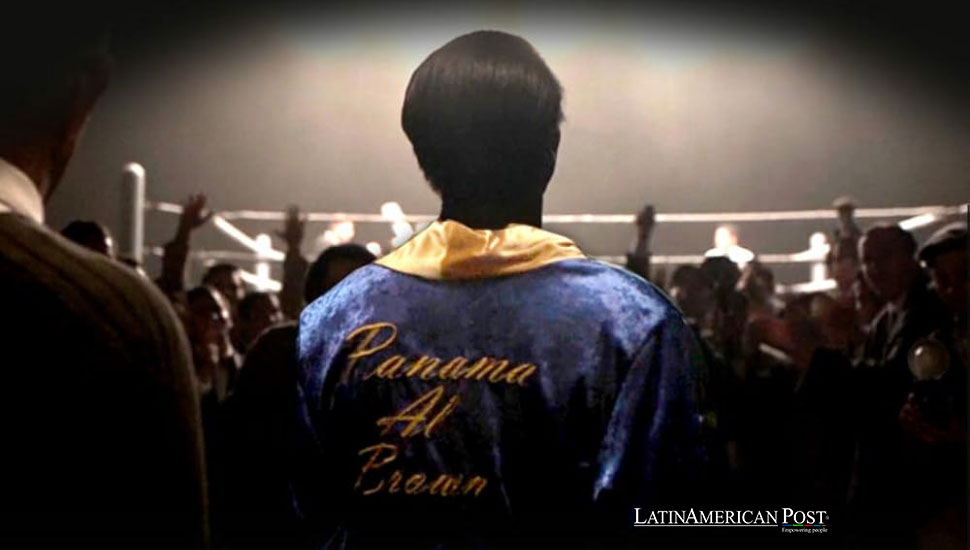New Film Revives Legacy of Afro-Gay Panamanian Boxer Al Brown

The upcoming film “Brown” celebrates Panama Al Brown, the first Latin American world boxing champion. Premiering in August, it explores his life as an athlete and his relationship with French artist Jean Cocteau, spotlighting his Afro-gay heritage.
The trailer for the film “Brown,” set to premiere in August, was unveiled in Panama City’s Museo del Canal to celebrate Pride Month. The film, co-directed by Panamanian Ricardo Aguilar and Cuban filmmaker Manolito Rodríguez, chronicles the life of Alfonso Teólilo Brown, better known as Panama Al Brown, the first Latin American world boxing champion. His story intertwines with his boxing achievements, his life as an artist, and his significant relationship with the French poet and filmmaker Jean Cocteau.
A Life Beyond Boxing
Set in 1938 Paris, “Brown” explores a pivotal period in Al Brown’s life after he lost his championship title in 1935. The film delves into his artistic pursuits and personal tastes, painting a portrait of a man who was much more than a boxer. “Brown” captures the essence of Al Brown’s time in Paris, where he worked as a showman in a lounge and formed a profound bond with Jean Cocteau.
“Cocteau was instrumental in convincing Brown to return to boxing and reclaim his title, which had been controversially taken from him,” explained Ricardo Aguilar. The film stars Cuban actor and dancer Leo Fuentes, who resembles the legendary boxer. Filmed in France and Panama, “Brown” has already received accolades, including the 2017 National Film Fund Competition award in Panama and the Coral Award for Best Unpublished Screenplay at the 40th Havana International Festival of New Latin American Cinema.
Charismatic and Elegant Fighter
Panama Al Brown, born on July 5, 1902, in Colón, Panama, became a symbol of national pride. He was known for his elegance in and out of the ring, performing with Josephine Baker’s troupe in Montmartre and captivating French surrealists with his multilingual talents and artistic flair. His career highlights include winning the bantamweight world title on June 18, 1929, by defeating Spanish boxer Gregorio Vidal in a 15-round match.
Brown’s life, however, was marred by hardships. Despite never being knocked out in his career, he lost his title in 1935 under dubious circumstances, suspected of being drugged during the match. His record boasts 135 wins, 61 by knockout, 18 losses, and 13 draws. Tragically, Brown died impoverished from tuberculosis in New York City on April 11, 1951. His remains were later repatriated to Panama, where they rest in the Amador Cemetery in El Chorrillo.
Ivan Chanis, Executive Director of the Fundación Iguales, emphasized the significance of celebrating Al Brown during Pride Month. For many years, Brown’s sexual orientation was marginalized in historical narratives. “Previous documentaries and films about Al Brown have overlooked his sexuality, ignoring his relationship with Jean Cocteau,” Chanis noted. Highlighting Brown’s identity as an Afro-gay man and his experiences with discrimination enriches the understanding of his legacy and the broader struggles against racism and homophobia.
“Recognizing Al Brown’s full identity is a way to reclaim Panamanian history and honor the diversity of his legacy,” Chanis added. This acknowledgment not only preserves Brown’s memory but also addresses ongoing challenges related to racism and discrimination based on sexual orientation in society.
Legacy and Impact
Panama Al Brown’s life and career offer a unique lens into the intersections of sports, art, and social issues in the early 20th century. His relationship with Jean Cocteau and his influence on French surrealism underscore his impact beyond boxing. “Brown” is a tribute to his multifaceted legacy, shedding light on the complexities of his life and the cultural context of his times.
The film’s release during Pride Month is particularly poignant. It celebrates Brown’s contributions and the resilience of LGBTQ+ individuals in the face of adversity. It also highlights the importance of inclusive historical narratives that honor the diversity of experiences and identities.
Also read: Art and Music Heal Open Wounds of Bojayá, Colombia Massacre
By bringing Al Brown’s story to the forefront, “Brown” commemorates a legendary athlete and inspires future generations to embrace their identities and pursue their passions, regardless of societal barriers. The film is a testament to storytelling’s enduring power in preserving and celebrating history’s often-overlooked figures.




